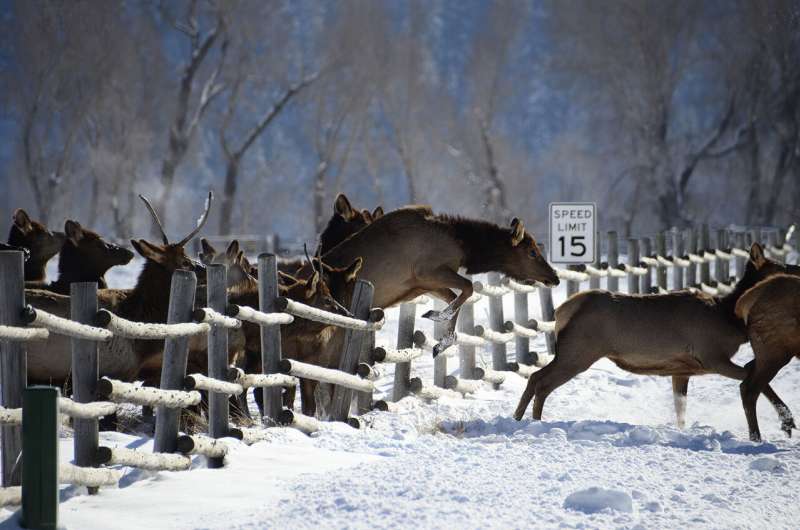This article has been reviewed according to Science X's editorial process and policies. Editors have highlighted the following attributes while ensuring the content's credibility:
fact-checked
peer-reviewed publication
trusted source
proofread
New study shows land mammals traveled farther during severe COVID-19 lockdowns

Human behavior changed dramatically during lockdowns in the first months of the global COVID-19 pandemic, resulting in behavioral changes of land mammals. This is according to a study published in Science by a large international research team led by Marlee Tucker, an ecologist at Radboud University. Wild mammals traveled longer distances and appeared closer to roads during strict lockdowns.
Tucker and 174 colleagues, including members of the COVID-19 Bio-Logging Initiative, analyzed global data from land mammals tracked by GPS devices. Tucker says, "There were many media reports that nature was recovering during those first lockdowns. For example, cougars were roaming the streets of Santiago, Chile, but we wanted to know: is there any evidence of this? Or were people simply paying more attention to everything while being at home?"
Movements of mammals
Tucker and colleagues collated data from the movements of 43 different species of land mammals from around the world. In total, more than 2,300 individuals were included: from elephants and giraffes to bears and deer. The researchers compared the mammals' movements during the first period of lockdowns, from January to mid-May 2020, with movements during the same months a year earlier.
"We saw that during strict lockdowns, animals traveled up to 73% longer distances in a period of 10 days than the year before, when there were no lockdowns. We also saw that animals occurred, on average, 36% closer to roads than the year before. This is probably because those roads were quieter during strict lockdowns," says Tucker.
There are several explanations for these results: there were fewer people outside during strict lockdowns, giving animals the opportunity to explore new areas. "In contrast, in areas with less strict lockdowns, we saw that animals traveled shorter distances. This may have to do with the fact that during those lockdowns, people were actually encouraged to go into nature. As a result, some nature areas were busier than before COVID-19," says Thomas Mueller, Senckenberg Biodiversity and Climate Research Center and Goethe University Frankfurt, who designed the study together with Tucker.
The lockdowns provided a unique opportunity to study the effects of an abrupt change in human presence on wildlife. "Our research has shown that animals can respond directly to changes in human behavior. This offers hope for the future, because in principle this means that making some adjustments to our own behavior could have a positive effect on animals," says Tucker.
More information: Marlee A. Tucker, Behavioral responses of terrestrial mammals to COVID-19 lockdowns, Science (2023). DOI: 10.1126/science.abo6499. www.science.org/doi/10.1126/science.abo6499
Colleen Cassady St. Clair et al, Mammals responded to reduced road traffic, Science (2023). DOI: 10.1126/science.add9662 , www.science.org/doi/10.1126/science.add9662
Journal information: Science
Provided by Radboud University Nijmegen




















